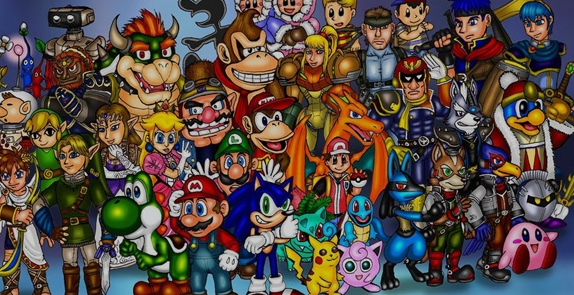Unraveling the World of Fictional Characters: From Definitions to Favorites

Fictional characters have always been at the heart of storytelling, captivating audiences with their unique personalities, challenges, and growth. Whether it’s in books, movies, or TV shows, these characters provide an escape from reality and allow us to explore different worlds and experiences. In this article, we’ll delve into the essence of fictional characters, provide examples, discuss the most recognized ones, and even touch upon the various types of characters in fiction.
Also Read:- Metatron: The Enigmatic Angel of the Bible and His Power
What is a Fictional Character?
A fictional character is a person or creature in a narrative work of art such as a novel, play, television series, or movie. Unlike real-life individuals, these characters are conjured up from the imagination of the writer or creator. They serve as the driving force behind the story, each with their own set of traits, backgrounds, and arcs.
Example of a Fictional Character
One of the most iconic fictional characters is Sherlock Holmes, the brilliant detective created by Sir Arthur Conan Doyle. With his sharp wit, keen observation skills, and unparalleled deductive reasoning, Holmes has solved countless mysteries in the streets of Victorian London, accompanied by his loyal friend, Dr. John Watson.
Who is the Most Recognized Fictional Character?
While many characters have left an indelible mark on popular culture, one stands out as the most recognized globally: Mickey Mouse. Created by Walt Disney and Ub Iwerks in 1928, this cheerful rodent with his signature red shorts and large ears has become the face of the Disney empire. Mickey’s universal appeal transcends age and geography, making him a beloved figure in countless households.
Who is Your Favorite Fictional Character?
This is a subjective question and varies from person to person. Some might be drawn to the heroism of characters like Harry Potter, while others might resonate more with the complexities of figures like Jay Gatsby. Personally, I’ve always been fascinated by Elizabeth Bennet from Jane Austen’s “Pride and Prejudice.” Her wit, intelligence, and strong sense of self in a society that often tried to suppress women’s voices make her a timeless character.
The 4 Types of Characters in Fiction
- Protagonist: This is the main character around whom the story revolves. They drive the plot forward and often undergo significant development. Examples include Frodo Baggins from “The Lord of the Rings” and Katniss Everdeen from “The Hunger Games.”
- Antagonist: Opposing the protagonist, the antagonist often creates conflict in the story. They can be a person, group, or concept. Examples include Lord Voldemort from “Harry Potter” and the White Witch from “The Chronicles of Narnia.”
- Static Character: These characters remain largely unchanged throughout the story. Their beliefs and personalities stay consistent, serving as a contrast to the evolving protagonist. Examples include Mrs. Norris from “Mansfield Park” and Mr. Collins from “Pride and Prejudice.”
- Dynamic Character: Opposite to static characters, dynamic characters undergo significant change, whether in personality, beliefs, or outlook. Examples include Ebenezer Scrooge from “A Christmas Carol” and Prince Zuko from “Avatar: The Last Airbender.”
List of Fictional Characters
- Harry Potter from “Harry Potter” series
- Hermione Granger from “Harry Potter” series
- Luke Skywalker from “Star Wars”
- Elizabeth Bennet from “Pride and Prejudice”
- Jay Gatsby from “The Great Gatsby”
- Atticus Finch from “To Kill a Mockingbird”
- Jo March from “Little Women”
- Sherlock Holmes from the Sherlock Holmes series
- Katniss Everdeen from “The Hunger Games”
- Tyrion Lannister from “Game of Thrones”
In conclusion, fictional characters are the soul of any narrative, offering readers and viewers a chance to see themselves, learn, and grow. They reflect our dreams, fears, and aspirations, making stories resonate on a deeply personal level. Whether you’re a fan of classic literature or modern cinema, there’s no denying the power and allure of these imaginative creations.
Frequently Asked Questions (FAQs) about Fictional Characters
- What is a fictional character?
- A fictional character is a person or creature in a narrative work of art, such as a novel, play, television series, or movie, created from the imagination of the writer or creator.
- Can a fictional character be based on a real person?
- Yes, many fictional characters are inspired by real-life individuals, but they are often altered or exaggerated to fit the narrative of the story.
- Who is the most recognized fictional character in the world?
- Mickey Mouse, created by Walt Disney and Ub Iwerks in 1928, is often cited as one of the most recognized fictional characters globally.









